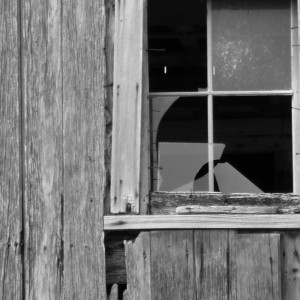Making Ourselves Invisible
The locals called us Nihonjin, (Japanese) and none of us were upset because that was obvious. But if any of us called them Chosenjin, (Koreans) they got very angry. (It was the pent-up rage from many years of Japanese military rule.) In order not to provoke them, we decided to call them, “the people of here.” But if we weren’t careful, the words still slipped out of our mouths—Chosenjin.
The north wind that started blowing during the night kept gusting with the arrival of morning. We huddled in the corners of the rooms with rounded backs when the west-facing window shattered with a loud crash. We looked at each other. Another window broke.
A young Korean yelled something. When we peeped outside, we saw five or six kids, maybe fourteen or fifteen-year olds. They held rocks in both hands, and threw them at our windows. I rushed over to get Sakiko—any of these windows might be next.
Dancho Narita got up unsteadily and closed the northern window shutters quietly. Then all of us women and children hid in the darkened room. My children said nothing as they held onto me, letting their noses drip. If we could reach the Hoantai, the Korean police, maybe they would help us. But who was going to go from our house, down the hill to let them know? No one had the courage. If we went outside, were we going to be beaten? Maybe some thugs would kill us or worse…we were terrified. Even Dancho Narita trembled.
Through the cracks in the window shutter, we saw a white neck scarf of one of the boys. I tried to comfort Dancho Narita by saying, “Dancho Narita, maybe we could fix the broken window with a piece of paper.”
He just said, “Those stupid kids.”
After a while, we heard footsteps run over to our kitchen, Bang. Crash. There was the sound of metal banging into something. A boy said in Korean, “Hey, there’s a hango.” After some rustling, there was no noise. In a rush, we ran over to the kitchen.
Five of the hango that we had kept were taken. There was only one left. “If we don’t have our hango, how are we going to cook?” Tears streamed down Mrs. Daichi’s thin face. “And I had stuffed mine full of potatoes…for our dinner.”
Seiko-chan pulled Mrs. Daichi’s sleeve, “It’s no use crying, Mama.” And she went back into our room.
There were days when shifty-eyed Korean men hung around near the house. And days when boys drew nasty graffiti on our house. Some men came, saying they had messages from our men in Heijo. They banged on our door, claimed they had business with our men, and looked at us with suspicious eyes. The Koreans who were sympathetic no longer came near. If we passed each other on the street, they slipped the children an apple or a piece of candy. Most of those people were elderly. The young Koreans tried to not look at us as they passed by.
We didn’t know what would happen if we ran across the Koreans who really hated us. They could do anything and we wouldn’t be able to defend ourselves. We were terrified whenever we had to go outside, and shrank into ourselves in an effort to make ourselves invisible. The children learned this, too, and when they saw any townspeople, they covered their frightened faces and hid behind us.
